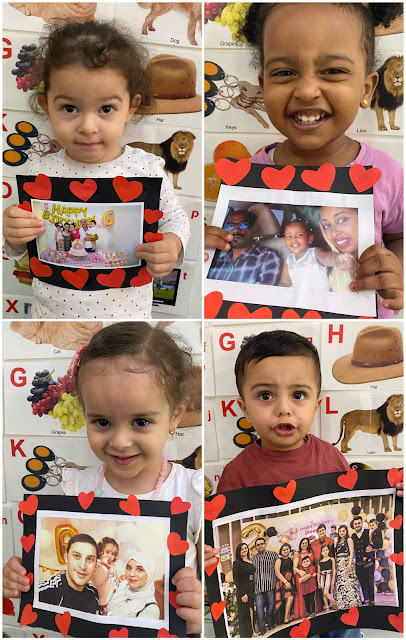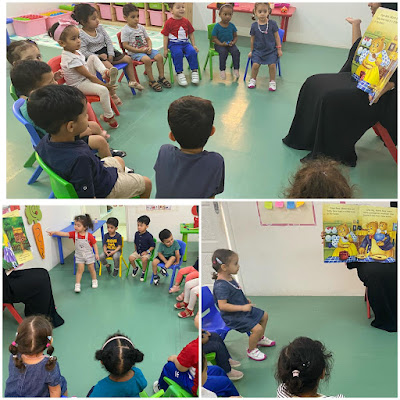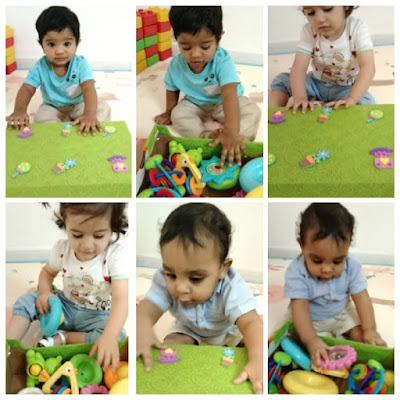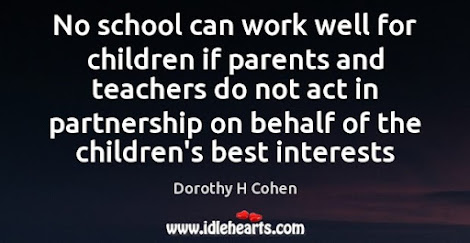THE ROLE OF PARENTS IN EARLY CHILDHOOD EDUCATION

The first five years of a child’s life, sees the most and the fastest development of the child’s brain. The brain of a child grows 80% of adult size by age 3 and 90% which is nearly full growth by age 5.
What are some misunderstandings?
It is a general belief among parents that their role is limited to getting their child enrolled in a preschool and connecting to the preschool only if there is a concern or a complain. To belief that by packing high quality food in expensive lunch boxes and buying expensive stuff as bags and shoes, their role is done, is totally a wrong notion. There is more to parents’ participation and involvement in their child’s early education.
Why is parent participation important?
Parents’ involvement and active role in the early childhood education of their child ensures that their child receives full support in order to develop to full potential. Parents’ participation in their child’s learning does not only extend the teaching outside the four walls of the classroom but also connects preschool and home. The child feels confidence of his classroom learning and becomes an active participant in the learning process, thus, helping the child to perform better academically as well as in future life. The child tends to lead a more successful, productive and a healthier life as an adult.
Why connect classroom and home?
Parents are catalyst whose role might not be obvious in the beginning, but it does become evident gradually as the child climbs the ladder of life. When parents actively engage with their child’s learning in the preschool on a daily basis, it helps them to understand child’s behavior and establish their child’s learning patterns. The child feels more confident and open ups in front of them as he would not open up in front anyone else. They learn about their child’s insecurities, peer pressures, difficulties and concerns. When parents address these issues, the child develops trust and respect for the parent and this underpins the foundation of a long term friendly relationship between the child and the parents. The impact that the parents have on the little mind can never be replaced, be it positive or negative.
What should parents do?
· Give positive affection and attention
· Always be available for your child
· Teach independence
· Teach the difference between right and wrong
· Teach ways to control emotions
· Teach to communicate ideas and opinions
· Teach good behavior and conduct
Parents are active facilitators and guides for the child: As they facilitate the child’s learning, they become aware of their child’s competency and areas of concerns. They are then in a better position to guide their child to improvement. Due to their active participation, they promote school-readiness, social-emotional development, cognitive and language development. The child becomes more aware of the world around and becomes responsible global citizen, impacting positive change in the environment in the long run.
Helpful Tips:
· Regular engage with a talk with your child’s teacher. Learn about your child’s interest, likes, dislikes, concerns and areas that need attention.
· Make your home an extension of your child’s classroom.
· Engage with your child’s friends in preschool and peers, thus, connecting classroom and home.
· Attend PTA meetings and other events organized by the preschool.
· Participate in all extracurricular activities organized by the preschool.
· Ask questions to your child e.g. How was your day at preschool? what did you learn today? What did you like the most today? What was the hardest part of the day? This helps your child to reflect on their learning and also open up in front of you.
There are two main actors in your child’s life – Parents and Teachers









































